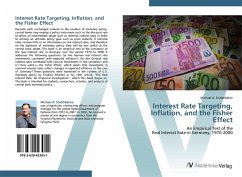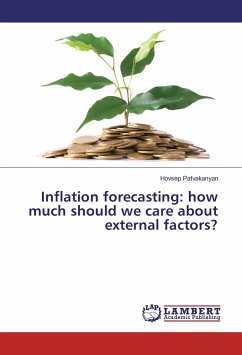
The Fisher Effect
Evidence from Survey of Inflation Expectations
Versandkostenfrei!
Versandfertig in 6-10 Tagen
32,99 €
inkl. MwSt.

PAYBACK Punkte
16 °P sammeln!
The Fisher effect, one of the oldest paradigms of Financial Economics, has been scrutinized for decades. Behind the large body of academic literature lies the intuitive idea that nominal interest rates should adjust to changed expectations of inflation, leaving the real rate unaffected. Despite the amount of attention the theory has received, the empirical evidence is not nearly conclusive. This book lends considerable weight in support of the Fisher Effect, by modeling the equation under realistic conditions, and relaxing some of the assumptions commonly present in the empirical literature. T...
The Fisher effect, one of the oldest paradigms of Financial Economics, has been scrutinized for decades. Behind the large body of academic literature lies the intuitive idea that nominal interest rates should adjust to changed expectations of inflation, leaving the real rate unaffected. Despite the amount of attention the theory has received, the empirical evidence is not nearly conclusive. This book lends considerable weight in support of the Fisher Effect, by modeling the equation under realistic conditions, and relaxing some of the assumptions commonly present in the empirical literature. The assumption of Rational Expectations is circumvented through use of new survey data on inflation from the Consensus Forecast. The model also allows for active monetary policy, using four different monetary regimes: the US, Euro Area, Switzerland, and Sweden. The evidence suggests that interest rates fully adjust to changes in the expected level of inflation, and debt markets act rationallywhen forming expectations of inflation. This book may be of particular use to monetary or financial economists, and in financial and academic institutions.












